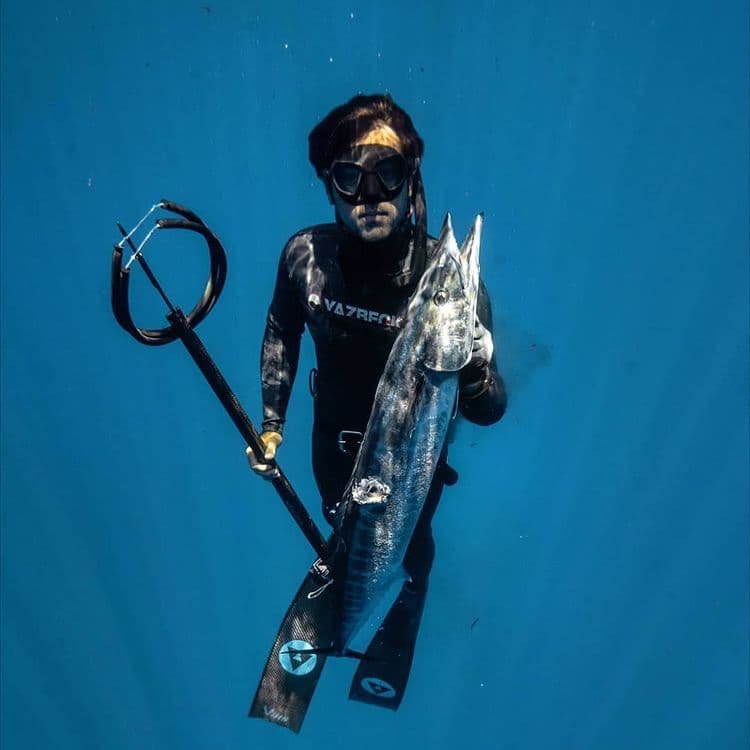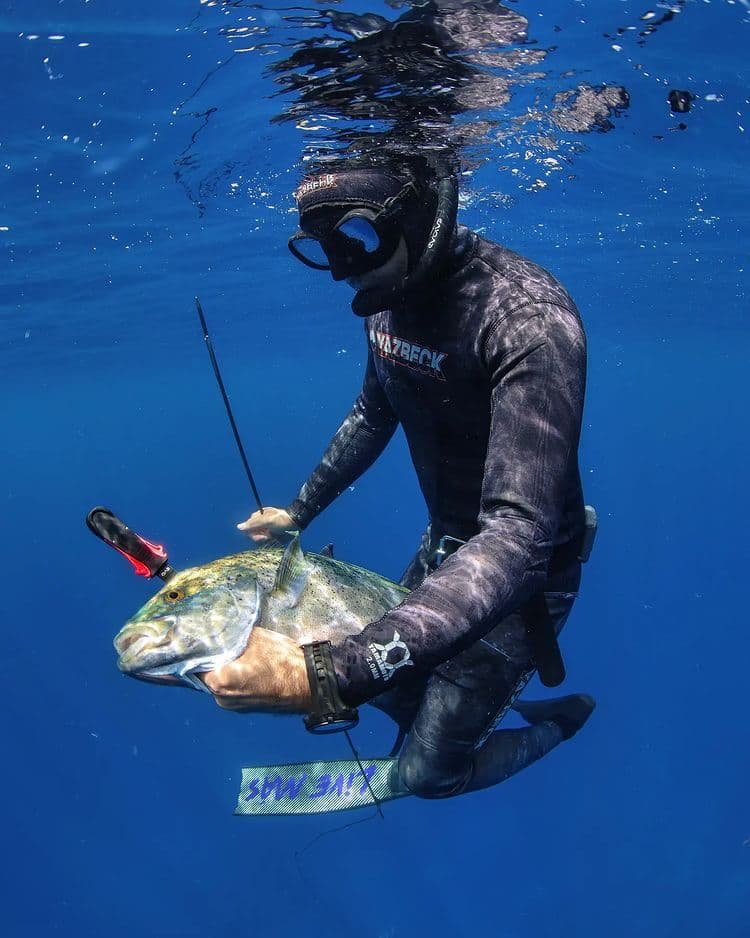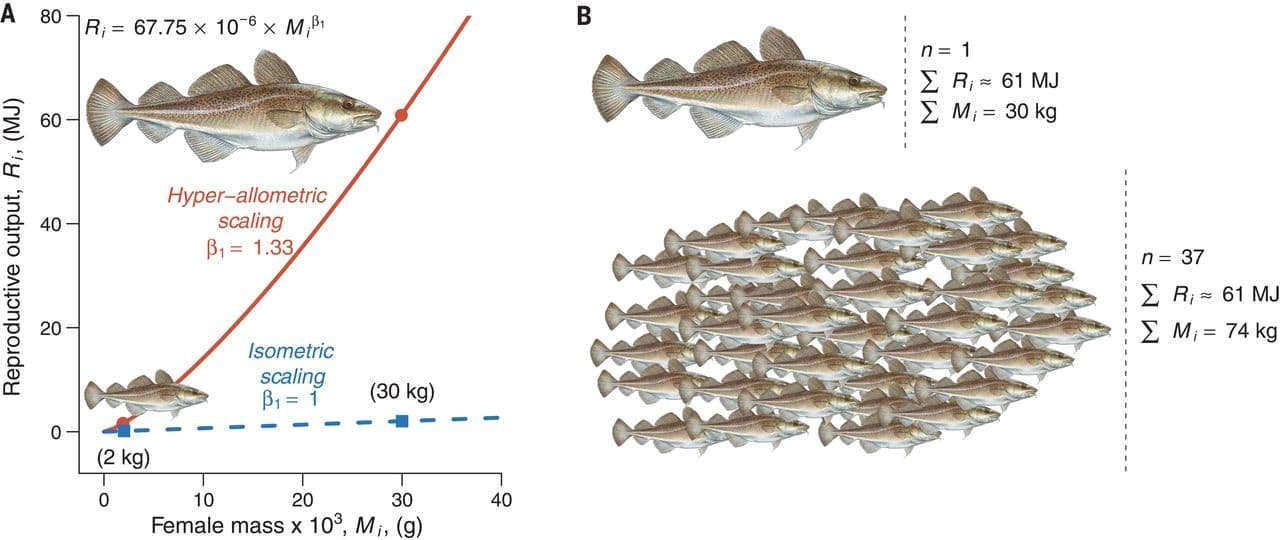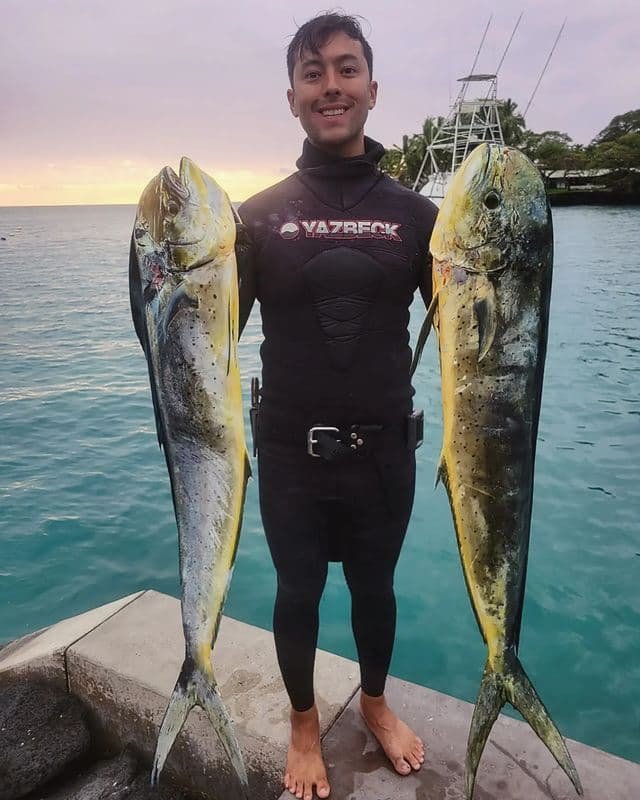Welcome, you’ve just jumped into the big wide world of spearfishing and are just starting to figure out where to go and what fish to shoot. These early times are the formative years for many spearfishermen and will reflect how they carry themselves in the future. But whether you are a beginner or a seasoned veteran, learning to be a respectful spearo will take you far. Spearfishing is an ethical, precise means of taking resources from the ocean, but that does not mean a diver can't do damage, create conflicts with other ocean users, or leave a poor impression on their local communities. It is up to each and every one of us to be good stewards of the water and representatives of the fishing community. I am going to explain why you should be aware of your actions, and how you can create a positive image for spearfishing that ensures spearfishing stays in your local area.
When I was a kid I watched my dad and his friends; they caught so many prized fish we could fill an entire driveway or dock. It was impressive how many fish these guys could haul out of the ocean and when they were younger (1970’s), there were even more. After a long day, I remember the sound of the fish and ice sloshing around in the cooler as we bumped around in an old truck. We’d pull into the driveway and unload sunbaked coolers full of fish out of the trucks. The smell of fish blood left an astringent smell in the air whenever I opened the cooler. I tried with all of my might, but some fish were too heavy for a 10-year-old to lift. I was left with scratched-up hands from the cold gills, but that wouldn't stop me because I wanted to help. I’ve heard stories of trucks full of fish and lobsters coming back after a single day of diving. I’ve seen photos of large branching black coral, which has since been sold to make jewelry.

I've been fishing most of my life and I saw the sea change before my eyes. It wasn't until I was in my twenties I really started to think about my hunting mentality. I decided to take only what I needed. Because you don’t see black coral in the shallows, you don’t see lobster during the daytime, you don’t see as many fish. But if you asked dad’s opinion “You just junk." But things have changed over the years of fishing with dynamite, chemicals, nets, and a sense that the seas are limitless have changed what Hawaii once was. I want to change the direction things are heading in - and I want you to prevent it from happening wherever you live.
Here in Hawaii, we call fishermen Lawai’a, it’s both a title and a lifestyle. Lawai’a are providers and are relied upon to get fish out of the ocean and into the community. For those who live on an island, this is a very important job. This need to feed the community is balanced with an understanding that the ocean is not a limitless resource but one that must be taken care of and conserved for future generations. So, why do you spearfish? Ask yourself this, how you view yourself as a hunter will direct how you carry yourself. You might not be a commercial diver or a provider for the whole community, but if you go out and catch enough food for yourself, you are part of the spearfishing world.

Another Hawaiian term is pono - pono means “righteous” and as lawai’a our pono practices mean we do right for ourselves, the community, the ocean and the resources on which we are relying. Goatfish are a highly prized fish fetching up to $20/lb (20USD/450g); they are pressured both commercially and recreationally for their flavor. But is it okay to pressure a few species of fish because of their notoriety? I once heard a saying that went something like “Don’t swim past a school of Palani (surgeonfish) for the last Kumu (goatfish)” and that really stuck with me. There are so many edible fish in the sea, I recommend diversifying your catch and trying new recipes. You might be shocked at how good some overlooked species are, even when served right next to some prized fish.
Let’s say you got that last goatfish in the sea; now there’s no more goatfish for anyone. Now some people are upset that a fish species is gone, and because you couldn't regulate yourself, other people are going to try to regulate you. This is how laws get passed. The vast majority of people in the world are not spearos and their only understanding of what spearfishing is what YOU show them. It is up to each and every one of us to be good role models for our community. If you want to continue fishing unregulated by the government, then I highly suggest you take a little bit of time and join a local community fishing group, go to fisheries meetings, or talk with your local government officials. All these groups are made up of people; they are not that scary, and in most cases are kind and open to hearing new perspectives and opinions. Ninety percent of the people who are voting have no idea what spearfishing entails, but if you make life harder for them, eventually you may find your activities getting restricted or even banned. So please, don't spearfish next to people swimming, don’t point your gun or pole spear at anyone, don’t leave a mess, don’t clean your fish next to people in the water, and if you eat a lot of asparagus, don’t take off your wetsuit - just leave it on till you get home.
Fish size is directly tied to their fecundity; large fish make more babies, and those offspring have higher chances of survival coming from large successful parents. Larger fish tend to produce exponentially more eggs, and on average larger eggs, these lager eggs also have lower rates of mortality. Let’s explore some research presented below.

These researchers have found that it takes about 37 individual fish weighing 2kg each to match the egg production (in this case reproductive energy) of a single large 30 kg fish. Each species is a little different, but for the most part research shows larger females are the better egg producers, usually by exponential amounts. This means it is better for the breeding population to remove 15 2kg fish instead of a single 30kg if you were only interested in feeding yourself. I know, we all want that trophy fish, but it will come at a cost to the breeding stock of fish. In places where species are well populated, it’s much less of an issue. However, if you are in a location with declining fish stocks, consider not pulling the trigger on that large trophy fish.
If you’re more interested in the hunt than anything, consider finding and removing populations of invasive or non-native fish species. In the Caribbean they have tons of lionfish, Hawaii has the peacock grouper, and carp is on the list in many parts of the US. Invasive fish can have havoc on an ecosystem and most governments encourage the removal of them. I host invasive species tournaments to remove roi (peacock grouper) from the reef, as most have ciguatoxin and are inedible. I donate the fish to be used as natural fertilizer for agricultural developments. In cases like lionfish which are delicious, consider making a nice meal out of some of them.

Believe it or not, small actions can go a long way in your local area. I love to share my catch with those who can’t fish anymore, or those who have never tried some local fresh-caught fish. These experiences for non-fishers can really highlight the best parts of fishing. Seeing someone’s face light up when you give them some fresh perfectly cooked fish is the best feeling in the world. I love to share how I prepare my fish, the care and preparation involved, and how ono (delicious) it can be. If you’ve never tried pouring boiling hot peanut oil over freshly steamed goatfish, you have to try it. I don’t take more than I need, and I have never filled my driveway with fish just to show off. These little things can make a huge impact on people’s perception of what spearfishing is. And guess what? Not taking more than you need or having to throw away freezer-burnt fish (because you only wanted a photo) is actually good for fish stocks. I am planning on leaving the ocean in a better place than where I found it. How about you? I am not only thinking of myself, but future generations because they are watching.
So, why do you spearfish? Are you a provider, hunter, or a hunter for likes on Instagram? There is no wrong answer. Think about what it means to have pono practices for you; ask yourself what respect for myself, my community and my waters really means. If you see others not being respectful, tell them - because they are going to make things worse for all of us. No, you don’t have to put them on blast; a face-to-face conversation or a simple message to help educate can usually help push the point across. If they hide what they are doing, then they know what they're doing is wrong. We can all make a difference and we can all work together to keep spearfishing from disappearing.